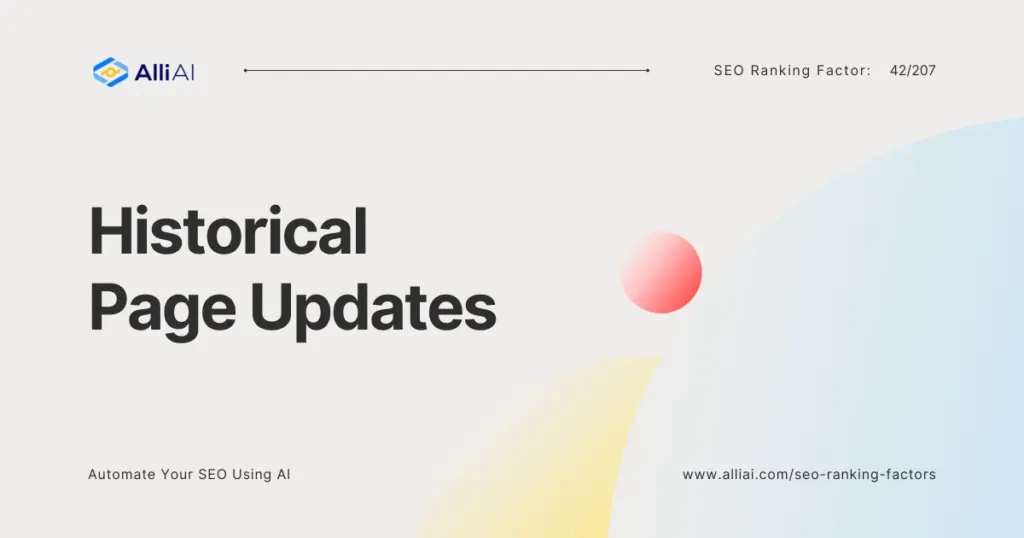Explanation of Historical Page Updates
Historical page updates refer to the frequency, quality, and relevance of the content changes made on a website over time. Imagine your website as a living document in a vast library. Just as a book that receives regular updates becomes a more valuable resource over time, a website that undergoes frequent, high-quality updates is perceived as more valuable by search engines.
Consider a guidebook to a rapidly evolving city. If the guidebook is updated regularly with new attractions, restaurants, and safety information, it becomes an invaluable resource for visitors. In contrast, a guidebook that hasn’t been updated in years quickly loses relevance. Similarly, a website that frequently updates its content remains relevant and valuable to its audience, much like the updated guidebook.
Why is Historical Page Updates Important in SEO?
The importance of historical page updates in SEO cannot be overstated. Search engines aim to provide users with the most relevant, up-to-date information possible. Websites that are regularly updated signal to search engines that they are likely to offer valuable, current content to users. This can lead to higher rankings in SERPs, as search engines prioritize sites that are perceived to be more useful to searchers.
How Historical Page Updates Affect SEO
Historical page updates affect SEO in several key ways:
1. Freshness of Content: Search engines give preference to sites that constantly update their content. This doesn’t mean changing a word here or there but adding significant value to existing pages or creating new, relevant content.
2. Relevance: By updating your site regularly, you can ensure that your content remains relevant to your target audience. This can be particularly important in industries that experience rapid change.
3. User Engagement: Updated content can breathe new life into your pages, encouraging users to spend more time on your site, decrease bounce rates, and increase page views—factors that can positively influence your SEO rankings. Relevant Stats and External Sources
Studies have shown a direct correlation between content update frequency and site visibility. A HubSpot benchmark report found that companies that updated older blog posts with fresh content and images saw a 106% increase in traffic to those pages ([source](https://blog.hubspot.com/marketing/update-old-blog-content)). Additionally, a SearchMetrics study concluded that content freshness was a significant ranking factor, impacting the search positions ([source](https://www.searchmetrics.com/insights/2020/03/25/google-ranking-factors/)).
FAQ
Can simply changing a few words improve my SEO through historical updates?
Merely tweaking a few words here and there is unlikely to yield significant SEO benefits. Search engines are sophisticated enough to distinguish between minor edits and substantial, meaningful updates that enhance the value of the content.
How often should I update my website’s content for optimal SEO?
The frequency of updates should be guided by the nature of your industry and the expectations of your audience. However, a general best practice is to review and update your most important pages at least once every 6 to 12 months.
Does updating older content carry the same weight as publishing new content?
Updating older content can often be more beneficial than creating new pages. This is because existing pages may already have some standing in SERPs. By enhancing them, you leverage their existing authority while improving their relevance and value.
Conclusion
Historical page updates play a crucial role in SEO, directly impacting how search engines perceive the value of a website. Regular, meaningful updates can significantly improve a site’s rankings by keeping content fresh, relevant, and engaging for users. In today’s fast-paced digital world, neglecting the importance of content updates can leave your site lagging behind competitors in search engine rankings. Therefore, it’s essential to devise a content update strategy that keeps your website’s information current and authoritative, ensuring that it continues to thrive in the ever-changing landscape of SEO.






